53 start with E start with E

K. C. Chang approaches the civilization of ancient China from the point of view of an anthropologist as well as from an archaeological perspective. He brings to bear on his subject familiarity with the Chinese materials and with the related data essential to placing the Chinese experience in context.
This volume of nine studies deals with the Shang (1766-1122 BCE) and Chou (1122-221) civilizations and the prehistoric cultures from which they sprang. Chang summarizes what is known about ancient crop cultivation and examines evidence concerning the transition from a food-gathering to a settled food-producing society. He discusses the origin of Chinese urbanism; the structure of Shang and Chou towns and the kinship and lineage system of this period; the preparation and serving of food in ancient China; the possibility of a coherent dualistic system in Shang society; and Shang and Chou mythology. One essay is published here for the first time; the others have been revised for this book. An extensive bibliography is appended.
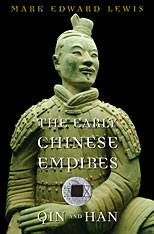
In 221 BC, the First Emperor of Qin unified the lands that would become the heart of a Chinese empire. Though forged by conquest, this vast domain depended for its political survival on a fundamental reshaping of Chinese culture. With this informative book, we are present at the creation of an ancient imperial order whose major features would endure for two millennia.
The Qin and Han constitute the “classical period” of Chinese history—a role played by the Greeks and Romans in the West. Mark Edward Lewis highlights the key challenges faced by the court officials and scholars who set about governing an empire of such scale and diversity of peoples. He traces the drastic measures taken to transcend, without eliminating, these regional differences: the invention of the emperor as the divine embodiment of the state; the establishment of a common script for communication and a state-sponsored canon for the propagation of Confucian ideals; the flourishing of the great families, whose domination of local society rested on wealth, landholding, and elaborate kinship structures; the demilitarization of the interior; and the impact of non-Chinese warrior-nomads in setting the boundaries of an emerging Chinese identity.
The first of a six-volume series on the history of imperial China, The Early Chinese Empires illuminates many formative events in China’s long history of imperialism—events whose residual influence can still be discerned today.

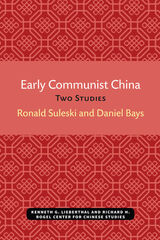
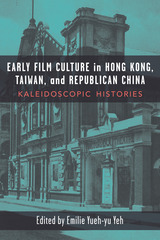

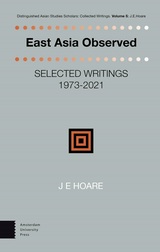
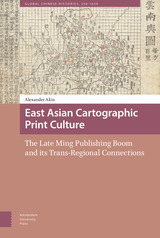
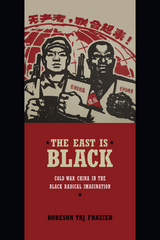

This book charts the vicissitudes of a rural community of papermakers in Sichuan. The process of transforming bamboo into paper involves production-related and social skills, as well as the everyday skills that allowed these papermakers to survive in an era of tumultuous change. The Chinese revolution—understood as a series of interconnected political, social, and technological transformations—was, Jacob Eyferth argues, as much about the redistribution of skill, knowledge, and technical control as it was about the redistribution of land and political power.
The larger context for this study is the “rural–urban divide”: the institutional, social, and economic cleavages that separate rural people from urbanites. This book traces the changes in the distribution of knowledge that led to a massive transfer of technical control from villages to cities, from primary producers to managerial elites, and from women to men. It asks how a vision of rural people as unskilled has affected their place in the body politic and contributed to their disenfranchisement. By viewing skill as a contested resource, subject to distribution struggles, it addresses the issue of how revolution, state-making, and marketization have changed rural China.
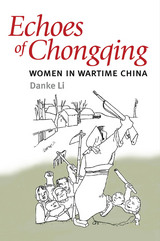
This collection of annotated oral histories records the personal stories of twenty Chinese women who lived in the wartime capital of Chongqing during China's War of Resistance against Japan during World War II. By presenting women's remembrances of the war, this study examines the interplay between oral history and traditional historical narrative, public discourse, and private memories. The women interviewed came from differing social, economic, and educational backgrounds and experienced the war in a variety of ways, some of them active in the communist resistance and others trying to support families or pursue educations in the face of wartime upheaval. Their stories demonstrate that the War of Resistance had two faces: one presented by official propaganda and characterized by an upbeat unified front against Japan, the other a record of invisible private stories and a sobering national experience of death and suffering. The accounts of how women coped, worked, and lived during the war years in the Chongqing region recast historical understanding of the roles played by ordinary people in wartime and give women a public voice and face that, until now, have been missing from scholarship on the war.
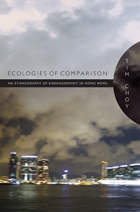
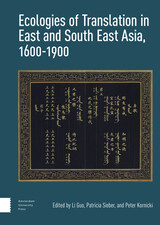

These clearly written and insightful essays address the roots of China's crisis. The authors focus on institutional changes necessary for a spontaneous market order and point to the close relation between economic reform and political-constitutional reform. Topics include the speed and degree of the transition, whether ownership reform must precede price reform, how inflation can be avoided, steps to depoliticize economic life, how to create an environment conducive to foreign trade and investment, and how to institute basic constitutional change and open China to the outside world.
The revolutionary changes now shaking the foundations of socialism and central planning in the Soviet Union and Eastern and Central Europe are sure to have an impact on China's future. Despite their seriousness, the events of Tiananmen Square may constitute only a temporary detour on the road toward a private market order. The essays in this volume help lay a rational framework for understanding China's present problems and for discussing the prospects for future reform.
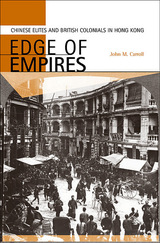
In an engaging, revisionist study, John M. Carroll argues that in the century after the Opium War, Hong Kong's colonial nature helped create a local Chinese business elite.
By the end of the nineteenth century, the colonial government saw Chinese businessmen as allies in establishing Hong Kong as a commercial center. The idea of a commercially vibrant China united them. Chinese and British leaders cooperated on issues of mutual concern, such as the expansion of capitalism and political and economic directions for an ailing China.
These Chinese also found opportunities in the colonial system to develop business and commerce. In doing so, they used Hong Kong's strategic position to underscore their own identity as a distinctive group unlike their mainland counterparts. Nationalism took on a specifically Hong Kong character. At the same time, by contributing to imperial war funds, organizing ceremonies for visiting British royalty, and attending imperial trade exhibitions, the Chinese helped make Hong Kong an active member of the global British Empire.
In Edge of Empires, Carroll situates Hong Kong squarely within the framework of both Chinese and British colonial history, while exploring larger questions about the meaning and implications of colonialism in modern history.
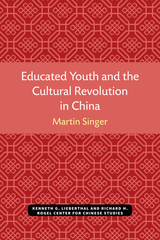

Unlike most studies of modern Chinese education that focus exclusively on the post-1949 era, Education, Culture, and Identity in Twentieth-Century China represents a deliberate attempt to break through the 1949 barrier and embrace the entire century. Culture emerges in this study as a deeper level factor that underlay the development of education in each period and shaped certain recurrent patterns, while identity involves a search for individual and collective meaning that went on under different regimes.
The product of a genuinely multidisciplinary effort to promote cross-fertilization among an international team of scholars in a wide range of disciplines, Education, Culture, and Identity in Twentieth-Century China will interest students and scholars of modern China, comparative and international education, educational policy, and international relations. It will also appeal to policy makers and professionals associated with international organizations.
Glen Peterson is Associate Professor of History, University of British Columbia. Ruth Hayhoe is Director, Hong Kong Institute of Education. Yongling Lu is a graduate student in the History Department, Stanford University.
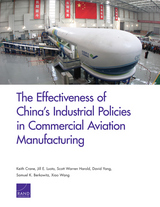

Ink landscape painting is a distinctive feature of the Northern Song, and painters of this era produced some of the most celebrated artworks in Chinese history. The Efficacious Landscape addresses how landmark works of this pivotal period first came to be identified as potent symbols of imperial authority and later became objects through which exiled scholars expressed disaffection and dissent. In fulfilling these diverse roles, landscape demonstrated its efficacy in communicating through embodiment and in transcending the limitations of the concrete.
Building on decades of monographic writings on Song painting, this carefully researched study presents a syncretic vision of how ink landscape evolved within the eleventh-century court community of artists, scholars, and aristocrats. Detailed visual analyses of surviving works and new insight about key landscapes by the court painter Guo Xi support the perspective put forward here and introduce original methodologies for interpreting painting as an integral element of political and cultural history. By focusing on the efforts of emperors, empresses, and eunuchs to cultivate ink landscape and its iconography, this investigation also tackles the social and class dichotomies that have long defined and frustrated existing scholarship on this period’s paintings, highlighting instead the interconnectedness of painting practice’s elite modalities.
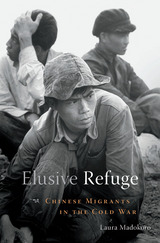
The 1949 Chinese Communist Revolution is a subject of inexhaustible historical interest, but the plight of millions of Chinese who fled China during this tumultuous period has been largely forgotten. Elusive Refuge recovers the history of China’s twentieth-century refugees. Focusing on humanitarian efforts to find new homes for Chinese displaced by civil strife, Laura Madokoro points out a constellation of factors—entrenched bigotry in countries originally settled by white Europeans, the spread of human rights ideals, and the geopolitical pressures of the Cold War—which coalesced to shape domestic and international refugee policies that still hold sway today.
Although the United States, Canada, Australia, New Zealand, and South Africa were home to sizeable Asian communities, Chinese migrants were a perpetual target of legislation designed to exclude them. In the wake of the 1949 Revolution, government officials and the broader public of these countries questioned whether Chinese refugees were true victims of persecution or opportunistic economic migrants undeserving of entry. It fell to NGOs such as the Lutheran World Federation and the World Council of Churches to publicize the quandary of the vast community of Chinese who had become stranded in Hong Kong.
These humanitarian organizations achieved some key victories in convincing Western governments to admit Chinese refugees. Anticommunist sentiment also played a role in easing restrictions. But only the plight of Southeast Asians fleeing the Vietnam War finally convinced the United States and other countries to adopt a policy of granting permanent residence to significant numbers of refugees from Asia.

Embassies and Illusions shows how peculiar circumstances in the early Ch'ing dynasty led to the application of the inherited routines of the tribute embassy to relations with Europeans. Chinese records of those embassies strengthened the illusion, persisting into the Opium War period, that the tribute system was relevant to the conduct of Sino-European relations.
From archival and printed sources in seven languages, John Wills traces the progress of four embassies—two Dutch, two Portuguese—to the court of K'ang-hsi. He constructs vivid pictures of the ambassadors and their staffs, their difficulties in their ports of arrival, the long journeys to Peking, the ceremonies at the courts, the gifts exchanged, the influence of Jesuits resident in Peking, and, of special interest, the young Emperor in the early years of his reign. Contexts of Ch'ing court and provincial politics and of Dutch and Portuguese relations with China are clearly described.
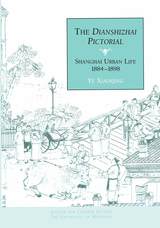

China is emerging as a truly global economic and political power. China’s impact on Latin America and the Caribbean region is mixed, however—fostering a trade market for some countries, but creating competition for others.
This pioneering volume, produced by the Inter-American Development Bank’s Integration and Regional Programs Department and Research Department, provides a comprehensive overview of China’s economic policy and performance over recent decades and contrasts them with the Latin American experience. What are the underlying factors behind China’s competitive edge? What are the strategic implications of China’s rise for growth and development in Latin America? These questions open new avenues for thinking about revitalizing development strategies in Latin America in the face of China’s successful development and reduction of poverty. This insightful report is a must-read for analysts, policymakers, and development practitioners, not only in Latin America and the Caribbean, but wherever China’s presence is being felt.
The Emergence of China is a copublication of the David Rockefeller Center for Latin American Studies and the Inter-American Development Bank.
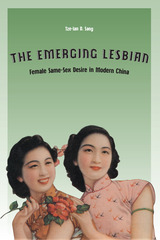
In this first ever book-length study of Chinese lesbians, Tze-lan D. Sang convincingly ties the debate over female same-sex love in China to the emergence of Chinese modernity. As women's participation in social, economic, and political affairs grew, Sang argues, so too did the societal significance of their romantic and sexual relations. Focusing especially on literature by or about women-preferring women, Sang traces the history of female same-sex relations in China from the late imperial period (1600-1911) through the Republican era (1912-1949). She ends by examining the reemergence of public debate on lesbians in China after Mao and in Taiwan after martial law, including the important roles played by globalization and identity politics.
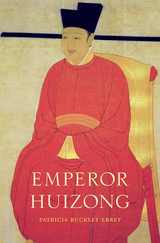
China was the most advanced country in the world when Huizong ascended the throne in 1100 CE. In his eventful twenty-six year reign, the artistically-gifted emperor guided the Song Dynasty toward cultural greatness. Yet Huizong would be known to posterity as a political failure who lost the throne to Jurchen invaders and died their prisoner. The first comprehensive English-language biography of this important monarch, Emperor Huizong is a nuanced portrait that corrects the prevailing view of Huizong as decadent and negligent. Patricia Ebrey recasts him as a ruler genuinely ambitious—if too much so—in pursuing glory for his flourishing realm.
After a rocky start trying to overcome political animosities at court, Huizong turned his attention to the good he could do. He greatly expanded the court’s charitable ventures, founding schools, hospitals, orphanages, and paupers’ cemeteries. An accomplished artist, he surrounded himself with outstanding poets, painters, and musicians and built palaces, temples, and gardens of unsurpassed splendor. What is often overlooked, Ebrey points out, is the importance of religious Daoism in Huizong’s understanding of his role. He treated Daoist spiritual masters with great deference, wrote scriptural commentaries, and urged his subjects to adopt his beliefs and practices. This devotion to the Daoist vision of sacred kingship eventually alienated the Confucian mainstream and compromised his ability to govern.
Readers will welcome this lively biography, which adds new dimensions to our understanding of a passionate and paradoxical ruler who, so many centuries later, continues to inspire both admiration and disapproval.



The compilation of the Complete Library of the Four Treasuries (Ssu-k’u ch’üan-shu) was one of the most ambitious intellectual projects of the Ch’ing dynasty. Initiated by imperial command in 1772, the project sought to evaluate, edit, and reproduce the finest Chinese writings in the four traditional categories: Confucian classics, histories, philosophy, and belles lettres. The final products, created over a 22-year period, were an annotated catalog of some 10,000 titles and seven new manuscript libraries of nearly 3,600 titles. The project had its darker side as well, for together with the evaluation of books there developed a campaign of censorship and proscription.
R. Kent Guy’s study gives a balanced account of the project and its significance. Dozens of celebrated Chinese scholars willingly participated in the project, though it was sponsored by the Manchu emperor, and Guy explains their reasons for doing so. He also reconsiders the issue of censorship, arguing that it grew as much from tensions and jealousies within the intellectual elite as from imperial command. Guy’s work will be useful to all those interested in the relationship between intellectuals and the state in late imperial China.
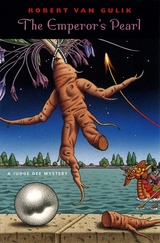
“If you have not yet discovered Judge Dee and his faithful Sgt. Hoong, I envy you that initial pleasure which comes from the discovery of a great detective story. For the magistrate of Poo-yang belongs in that select group of fictional detectives headed by the renowned Sherlock Holmes.”—Robert Kirsch, Los Angeles Times
“The title of this book and the book itself have much in common. Each is a jewel, a rare and precious find.”—Atlanta Times
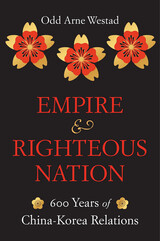
From an award-winning historian, a concise overview of the deep and longstanding ties between China and the Koreas, providing an essential foundation for understanding East Asian geopolitics today.
In a concise, trenchant overview, Odd Arne Westad explores the cultural and political relationship between China and the Koreas over the past 600 years.
Koreans long saw China as a mentor. The first form of written Korean employed Chinese characters and remained in administrative use until the twentieth century. Confucianism, especially Neo-Confucian reasoning about the state and its role in promoting a virtuous society, was central to the construction of the Korean government in the fourteenth century. These shared Confucian principles were expressed in fraternal terms, with China the older brother and Korea the younger. During the Ming Dynasty, mentor became protector, as Korea declared itself a vassal of China in hopes of escaping ruin at the hands of the Mongols. But the friendship eventually frayed with the encroachment of Western powers in the nineteenth century. Koreans began to reassess their position, especially as Qing China seemed no longer willing or able to stand up for Korea against either the Western powers or the rising military threat from Meiji Japan. The Sino-Korean relationship underwent further change over the next century as imperialism, nationalism, revolution, and war refashioned states and peoples throughout Asia. Westad describes the disastrous impact of the Korean War on international relations in the region and considers Sino-Korean interactions today, especially the thorny question of the reunification of the Korean peninsula.
Illuminating both the ties and the tensions that have characterized the China-Korea relationship, Empire and Righteous Nation provides a valuable foundation for understanding a critical geopolitical dynamic.

“The relationship between China and Korea is one of the most important, and least understood, in Asia. With the wisdom and clarity we have come to expect from Westad, this book illuminates the long history of these two neighbors.”
—Rana Mitter, author of China’s Good War
“A timely must-read primer on the China–Korea relationship…and its impact on and implications for our world today.”
—Carter J. Eckert, author of Park Chung Hee and Modern Korea
“Valuable and wide-ranging…As two thousand years of history have shown, China’s role in Korea is a complex one. Westad’s short and stimulating study provides many clues to understanding that relationship.”
—J. E. Hoare, Literary Review
“An insightful and entertaining primer on Korean history over the last 600 years.”
—Popular History Books
Koreans long saw China as a mentor and protector. Chinese culture heavily influenced Korea, whose first written language used Chinese characters, while Confucianism shaped the structure of Korean government. This deep, sometimes fraught, relationship has done more to shape the politics of the region than many realize.
During the Ming Dynasty, Korea agreed to become a vassal of China, in hopes of escaping ruin at the hands of the Mongols. The connection frayed in the nineteenth century, when the Qing, beset by domestic problems, did little to protect Korea from encroaching Western powers or the imperial designs of Meiji Japan. The relationship shifted again in the twentieth century as nationalism, revolution, and war refashioned Asia. Odd Arne Westad lays bare the disastrous impact of the Korean War on the region and offers a keen assessment of Sino–Korean interactions today, including the thorny question of reunification.

By the turn of the twentieth century, Japan’s military and economic successes made it the dominant power in East Asia, drawing hundreds of thousands of Chinese, Korean, and Taiwanese students to the metropole and sending thousands of Japanese to other parts of East Asia. The constant movement of peoples, ideas, and texts in the Japanese empire created numerous literary contact nebulae, fluid spaces of diminished hierarchies where writers grapple with and transculturate one another’s creative output.
Drawing extensively on vernacular sources in Japanese, Chinese, and Korean, this book analyzes the most active of these contact nebulae: semicolonial Chinese, occupied Manchurian, and colonial Korean and Taiwanese transculturations of Japanese literature. It explores how colonial and semicolonial writers discussed, adapted, translated, and recast thousands of Japanese creative works, both affirming and challenging Japan’s cultural authority. Such efforts not only blurred distinctions among resistance, acquiescence, and collaboration but also shattered cultural and national barriers central to the discourse of empire. In this context, twentieth-century East Asian literatures can no longer be understood in isolation from one another, linked only by their encounters with the West, but instead must be seen in constant interaction throughout the Japanese empire and beyond.
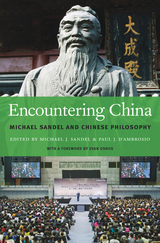
In the West, Harvard philosopher Michael Sandel is a thinker of unusual prominence. In China, he’s a phenomenon, greeted by vast crowds. China Daily reports that he has acquired a popularity “usually reserved for Hollywood movie stars.” China Newsweek declared him the “most influential foreign figure” of the year. In Sandel the Chinese have found a guide through the ethical dilemmas created by the nation’s swift embrace of a market economy—a guide whose communitarian ideas resonate with aspects of China’s own rich and ancient philosophical traditions.
Chinese citizens often describe a sense that, in sprinting ahead, they have bounded past whatever barriers once held back the forces of corruption and moral disregard. The market economy has lifted millions from poverty but done little to define ultimate goals for individuals or the nation. Is the market all there is? In this context, Sandel’s charismatic, interactive lecturing style, which roots moral philosophy in real-world scenarios, has found an audience struggling with questions of their responsibility to one another.
Encountering China brings together leading experts in Confucian and Daoist thought to explore the connections and tensions revealed in this unlikely episode of Chinese engagement with the West. The result is a profound examination of diverse ideas about the self, justice, community, gender, and public good. With a foreword by Evan Osnos that considers Sandel’s fame and the state of moral dialogue in China, the book will itself be a major contribution to the debates that Sandel sparks in East and West alike.

The first of its kind, this book offers a panoramic view of past and present overseas Chinese communities worldwide. From their arrival as laborers in the British colonies to their emergence as a force in Indonesia, Chinese emigrants have carried the experiences of China to other continents and civilizations, in the process modifying and enriching them. The Encyclopedia of the Chinese Overseas reflects the diverse histories and traditions that produced this diaspora, as well as the rich and various transmutations it has produced in turn.
Arranged geographically and thematically, with country-by-country profiles of individual Chinese communities, the book includes sections on the regional and cultural origins of emigrant communities; the history and patterns of migration; social, familial, and business institutions; and interethnic relations. An invaluable reference, it is as accessible as it is authoritative, highly readable from beginning to end. The engaging design employs boxed features, maps, graphs, tables, and a vast array of pictures to make complex material remarkably clear and vivid. A glossary identifies Chinese proper names and terms with their characters, while the bibliography gives full references to Chinese, English, French, and Spanish works.
Comprising signed articles by 50 noted scholars in Asia, North America, Europe (including Russia), Australia, and Africa, with a large advisory panel of eminent experts, the Encyclopedia is an unparalleled resource, providing an unprecedented view of one of the world's largest, oldest, and most varied cultures abroad.
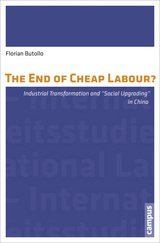
In The End of Cheap Labour?, Florian Butollo investigates the recent transformation of the garment and LED lighting industries in the Pearl River Delta, China’s largest industrial hub. He reveals that industrial upgrading rarely supports improvements in working conditions and the basic employment pattern; and this failure of “social upgrading” threatens to undermine the desired rebalancing of the Chinese economy. Butollo demonstrates that the implementation of collective labor rights remains an important obstacle in the future of the Chinese growth model.
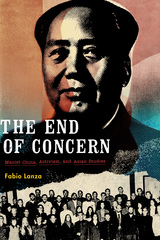
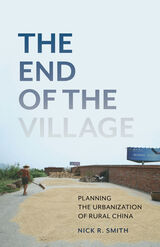
How China’s expansive new era of urbanization threatens to undermine the foundations of rural life
Since the beginning of the twenty-first century, China has vastly expanded its urbanization processes in an effort to reduce the inequalities between urban and rural areas. Centered on the mountainous region of Chongqing, which serves as an experimental site for the country’s new urban development policies, The End of the Village analyzes the radical expansion of urbanization and its consequences for China’s villagers. It reveals a fundamental rewriting of the nation’s social contract, as villages that once organized rural life and guaranteed rural livelihoods are replaced by an increasingly urbanized landscape dominated by state institutions.
Throughout this comprehensive study of China’s “urban–rural coordination” policy, Nick R. Smith traces the diminishing autonomy of the country’s rural populations and their subordination to larger urban networks and shared administrative structures. Outside Chongqing’s urban centers, competing forces are at work in reshaping the social, political, and spatial organization of its villages. While municipal planners and policy makers seek to extend state power structures beyond the boundaries of the city, village leaders and inhabitants try to maintain control over their communities’ uncertain futures through strategies such as collectivization, shareholding, real estate development, and migration.
As China seeks to rectify the development crises of previous decades through rapid urban growth, such drastic transformations threaten to displace existing ways of life for more than 600 million residents. Offering an unprecedented look at the country’s contentious shift in urban planning and policy, The End of the Village exposes the precarious future of rural life in China and suggests a critical reappraisal of how we think about urbanization.

As China develops its booming, fossil fuel-powered economy, is it taking lessons from the history of Western industrialization and the unforeseen environmental harms that accompanied it? Given the risks of climate change, is there an imperative, shared responsibility to help China respond to the environmental effects of its coal dependence? By linking global hazards to local air pollution concerns--from indoor stove smoke to burgeoning ground-level ozone--this volume of eighteen studies seeks integrated strategies to address simultaneously a range of harmful emissions. Counterbalancing the scientific inquiry are key chapters on China's unique legal, institutional, political, and cultural factors in effective pollution control.
Energizing China, the stage-setting publication of an ongoing program of Harvard-China research collaboration, is distinguished by its conceptual breadth and spirit of exchange. Its contributors include twenty-two Western and seventeen Chinese scholars with a disciplinary reach that includes science, public health, engineering, economics, public policy, law, business, and China studies.
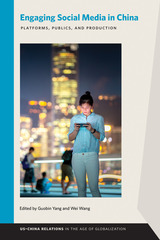
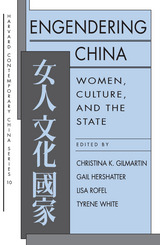
This first significant collection of essays on women in China in more than two decades captures a pivotal moment in a cross-cultural—and interdisciplinary—dialogue. For the first time, the voices of China-based scholars are heard alongside scholars positioned in the United States. The distinguished contributors to this volume are of different generations, hold citizenship in different countries, and were trained in different disciplines, but all embrace the shared project of mapping gender in China and making power-laden relationships visible. The essays take up gender issues from a variety of disciplinary perspectives. Chapters focus on learned women in the eighteenth century, the changing status of contemporary village women, sexuality and reproduction, prostitution, women's consciousness, women's writing, the gendering of work, and images of women in contemporary Chinese fiction.
Some of the liveliest disagreements over the usefulness of western feminist theory and scholarship on China take place between Chinese working in China and Chinese in temporary or longtime diaspora. Engendering China will appeal to a broad academic spectrum, including scholars of Asian studies, critical theory, feminist studies, cultural studies, and policy studies.
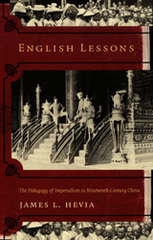
Hevia analyzes British Foreign Office documents, diplomatic memoirs, auction house and museum records, nineteenth-century scholarly analyses of Chinese history and culture, campaign records, and photographs. He shows how Britain refigured its imperial project in
China as a cultural endeavor through examinations of the circulation of military loot in Europe, the creation of an art history of “things Chinese,” the construction of a field of knowledge about China, and the Great Game rivalry between Britain, Russia, and the Qing empire in Central Asia. In so doing, he illuminates the impact of these elements on the colonial project and the creation of a national consciousness in China.

Robert Hart was one of those empire builders of the Victorian age who had a long and nearly uninterrupted experience in China, from 1854, when as a young Irishman from Belfast he landed in Ningpo, until 1908, when as a man in his seventies he finally retired to England. His years as the Ch’ing government’s Inspector General of the Maritime Customs Service have been copiously recorded in letters to his London agent, beginning in 1868, published as a 2-volume collection, The I. G. in Peking (Harvard, Belknap Press, 1975).
In 1970, a second lode of Hart materials came to light, the 77 volumes of his journals, begun on the day of his arrival in China in 1854 and ending at his departure in 1908, with two short but significant gaps in the first decade where he himself destroyed entries of too personal a nature.
Entering China’s Service presents a complete and annotated transcript of the surviving journals through 1863, alternating with chapters devoted to Hart’s North Ireland background, the China he encountered, the Ch’ing officials who trusted him, and the unfolding of his career. His reactions to the Chinese as well as to his fellow Westerners cast an invaluable light on nineteenth-century China.
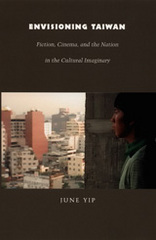
Yip traces a distinctly Taiwanese sense of self vis-à-vis China, Japan, and the West through two of the island’s most important cultural movements: the hsiang-t’u (or “nativist”) literature of the 1960s and 1970s, and the Taiwanese New Cinema of the 1980s and 1990s. At the heart of the book are close readings of the work of the hsiang-t’u writer Hwang Chun-ming and the New Cinema filmmaker Hou Hsiao-hsien. Key figures in Taiwan’s assertion of a national identity separate and distinct from China, both artists portray in vibrant detail daily life on the island. Through Hwang’s and Hou’s work and their respective artistic movements, Yip explores “the imagining of a nation” on the local, national, and global levels. In the process, she exposes a perceptible shift away from traditional models of cultural authenticity toward a more fluid, postmodern hybridity—an evolution that reflects both Taiwan’s peculiar multicultural reality and broader trends in global culture.



The People’s Republic of China has experienced numerous challenges and undergone tremendous structural changes over the past four decades. The party-state now faces a fundamental tension in its pursuit of social stability and regime durability. Repressive state strategies enable the Chinese Communist Party to maintain its monopoly on political power, yet the quality of governance and regime legitimacy are enhanced when the state adopts more inclusive modes of engagement with society.
Based on a dynamic typology of state–society relations, this volume adopts an evolutionary framework to examine how the Chinese state relates with non-state actors across several fields of governance. Drawing on original fieldwork, the authors identify areas in which state–society interactions have shifted over time, ranging from more constructive engagement to protracted conflict. This evolutionary approach provides nuanced insight into the circumstances wherein the party-state exerts its coercive power versus engaging in more flexible responses or policy adaptations.

Recent agricultural reforms in the People's Republic of China have generated great interest in the ability of the Chinese state, traditional and modern, to accommodate rapid economic change. Exhausting the Earth examines an earlier period—from the late Ming to the mid-Qing era marked by tremendous population growth, extension of the market, and increases in agricultural productivity.
Peter C. Perdue describes the relationship between agricultural production and state policies toward taxation, land clearance, dike-building; property rights, and agriculture in Hunan. During the late seventeenth and early eighteenth centuries, Hunan changed from a peripheral, sparsely populated region into a crowded, highly commercialized, grain-exporting province. State policies had stimulated this growth, but by the early nineteenth century serious signs of overpopulation, social conflict, and ecological exhaustion had surfaced. Local officials were conscious of these dangers, but the influence of the state on the economy was so weakened that they could not alter the ominous trends. The stage was set for the disintegration and rebellion of the nineteenth century. This in-depth study of official policies in one region over a long stretch of time illuminates the dynamics of official initiatives and local response.
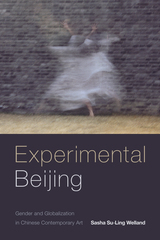

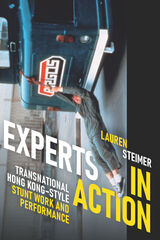
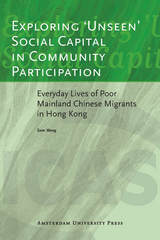

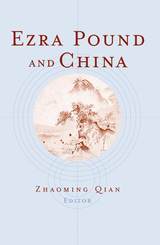
Richly illustrated, the book draws readers closer to the heart of Pound's vision. Ezra Pound and China will become an invaluable resource to students and scholars of Pound, cultural studies, translation theory, poetics, Confucianism, and literary transmission and reception.
Zhaoming Qian is Professor of English, the University of New Orleans.
READERS
Browse our collection.
PUBLISHERS
See BiblioVault's publisher services.
STUDENT SERVICES
Files for college accessibility offices.
UChicago Accessibility Resources
home | accessibility | search | about | contact us
BiblioVault ® 2001 - 2024
The University of Chicago Press









